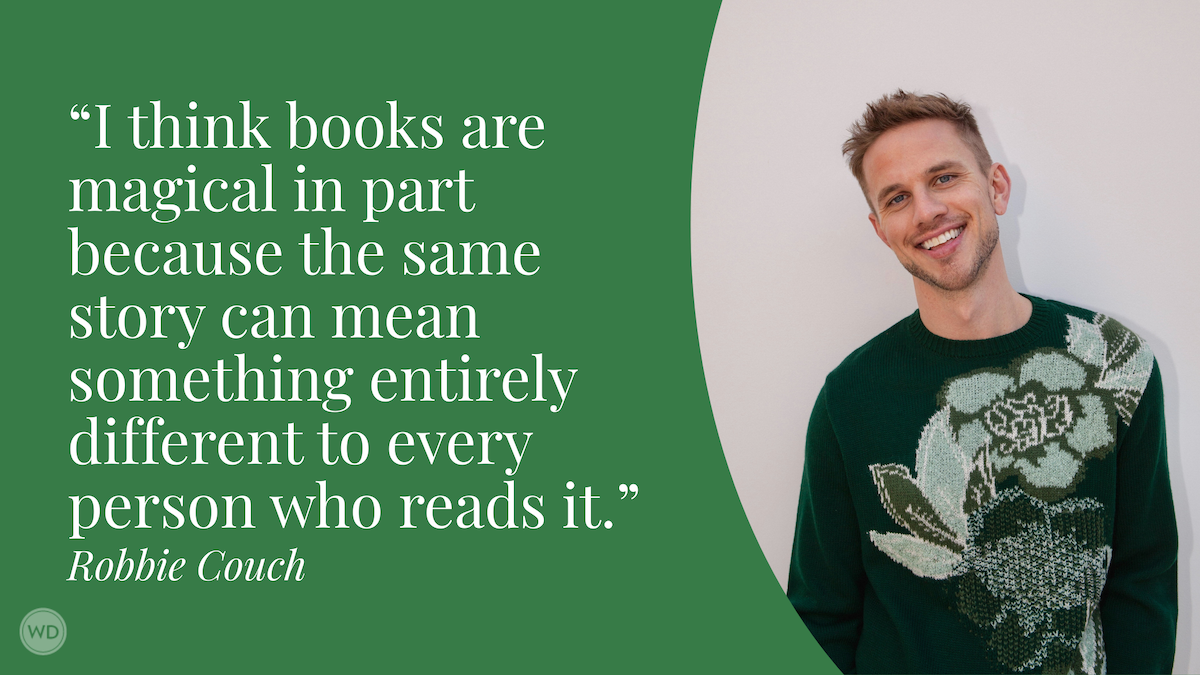Wade Rouse: Top 10 Ways to Stay True to Yourself in Publishing
Since many TANR readers seem to have enjoyed Erik Larson’s list of the Top 10 Essentials to a Writer’s Life and Sherman Alexie’s Top 10 Pieces of Writing Advice I’ve…
Since many TANR readers seem to have enjoyed Erik Larson's list of the Top 10 Essentials to a Writer's Life and Sherman Alexie's Top 10 Pieces of Writing Advice I've Been Given (Or That I'll Pretend Were Given to Me), today we offer you another list from another brilliant mind: memoirist Wade Rouse's Top 10 Ways to Stay True to Yourself in Publishing.
Happy Friday. (And if you're Nano-ing, happy Nano-ing!)
*
10. Do Not Try to Write Mary Potter & The Half-Price Rinse & Set, or Twilight: But With Zombies!
Listen closely to this, if nothing else: Write what you know, what you feel, what you believe, what needs to come out, not what you think you should write, or what you feel might sell. Write anything other than what you have a passion for, anything other than that story that burns to be told, and you’ll be a sellout.
9. Install A Lithium Drip in Your Home.
OK, just kidding. Pills are easier. Seriously, a balanced life is vital for success in publishing and staying on track. So, exercise. Cook. Run. Garden. Spend time with the ones you love.
8. Realize That Publishing Isn’t Art, It’s BART.
That’s business and art. Being true to oneself also requires being true to what publishing requires today. A writer needs to realize he can’t just sit home and write. He must market, promote, blog, Twitter, travel, call, cajole, shake hands, interpretive dance, whatever it takes to build a platform. It lets you continue to do what you love: write.
7. Be Like Dolly the Sheep: Clone Yourself.
Choose an agent, editor, publisher, publicist and Web developer who believe in your work as much as you do.
6. Fuggetabout Fear!
Most of us, especially writers, are defined by our fears. They strangle us, prevent us from finding our voices, pursuing our passion, writing what calls to us. So, turn “FEAR” into Free Every Artistic Response. When you do, your true voice will be unleashed.
5. Write Is Always Might.
Dance with the one who brought you to the ball: Write. As much as possible.
4. Be Funny, Honey!
I used to worry (and read) that humor writing was too subjective to be successful. But I realized that—besides great hair, a wicked arch and a penchant for spending my Roth IRA on lip shimmer—humor was really the only thing I had going for me. Don’t ever doubt your voice.
3. If You Look in the Mirror and See Mariah, RUN!
There’s no (more) room in publishing for divas. If Mariah were an author, she should sing, “It’s a Small World, After All,” because publishing is. Word spreads.
2. Look like your author shot.
Seriously. If you have to crop out LBJ, or Photoshop in a full collar on that Nehru jacket, it’s time for a new photo. When you show up looking nothing like you did when you were 25, your fans will consider you a sellout.
1. Heed The Advice of My Mentors, My Mom and Erma Bombeck.
I once sang “Delta Dawn” in a rural middle school talent contest to a gym filled with Conway Twitty/Loretta Lynn look-alikes who all laughed into their cowboy hats. My mom told me after it was over, “You were true to yourself. And that can only lead to happiness.” She bought me a journal and introduced me to Erma’s column. I will forever have two Midwestern moms who taught me, as Erma once said, “Laughter rises out of tragedy, when you need it most, and rewards you for your courage.” So laugh. Write. Be true to yourself. Happiness will follow and reward you for your courage.
Wade Rouse (waderouse.com) is the acclaimed memoirist of At Least in the City Someone Would Hear Me Scream, and It's All Relative. A humor columnist and essayist, his dog anthology I’m Not the Biggest Bitch in This Relationship! is out now.
*
(Wade's list originally appeared in our special Big 10 issue of Writer's Digest magazine, alongside lists by many other awesome scribes. Pick it up for cheap here.)
—Zachary Petit is an award-winning journalist, and the senior managing editor of Writer’s Digest magazine.
Like what you read from WD online? Check us out in print, or on your favorite mobile device.
Need help brainstorming story ideas for fiction or nonfiction? On the hunt for some great writing exercises?
Where Do You Get Your Ideas?explores the processes professional writers use in turning raw ideas into marketable books. This new manual from author Fred White (currently on sale!) is designed to help writers both generate story ideas as well as understand where they come from, how they are developed and how to separate the good from the bad.
Zachary Petit is a freelance journalist and editor, and a lifelong literary and design nerd. He's also a former senior managing editor of Writer’s Digest magazine. Follow him on Twitter @ZacharyPetit.








